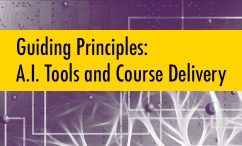GenA.I. in Teaching and Learning
Since their rise in popularity, generative artificial intelligence (gen AI) and large language models (LLMs) have had implications in higher education—in the form of both disruptions and opportunities—for faculty who teach and students who learn. Gen AI technologies have postsecondary institutions considering questions around assessment, academic integrity, intellectual property, and equitable access to gen AI tools.
The CLT has assembled a variety of resources to assist instructors in learning more about gen AI, exploring ways of engaging students around these tools, designing assessments with AI in mind, and considering some of the ethical and social impacts. As new resources become available, we will update this webpage. As this is an ever-growing resource about an ever-evolving tool, we welcome your feedback on aspects we could improve upon or elements we could add. Please contact us at onlinepedagogy@dal.ca.
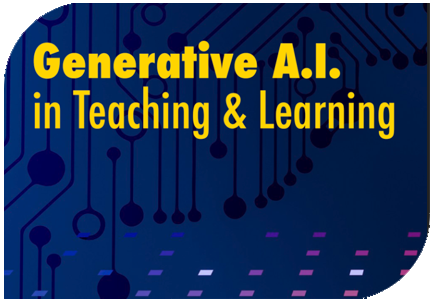 |
Generative Artificial Intelligence in Teaching and LearningThis digital book includes an intro to gen AI; ideas for communicating with students (including customizable slides you can use in class, sample syllabus statements); quick redesign ideas and examples of assessments that promote student learning (and mitigate AI use); and reflective activities and questions for educators. |
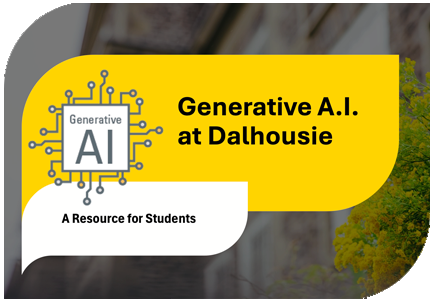 |
PowerPoint Slides for Talking with Students About Generative AI [.pptx, 21.5 MB]The CLT has developed a set of PowerPoint slides to facilitate a dialogue between you and your students and to help them learn more about generative AI. You can customize these to fit your own needs or context. |
 |
Individual Consultations and Group WorkshopsEducational developers at the CLT are available to consult with instructors individually or provide workshops for groups around gen AI in the classroom. Topics in the past have included introduction to gen AI in the higher ed classroom; writing an AI syllabus statement; practical applications of gen A.I. for teachers; and designing assessments with AI in mind. Reach out to clt@dal.ca to schedule a consultation or request a workshop. |
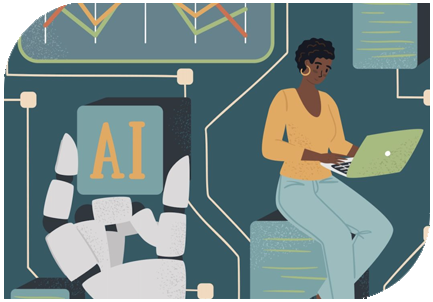 |
GenA.I. in Teaching and Learning Community of Practice [links to Teams site]In this CoP, we aim to create a space for cautious, critical, and open discussion and sharing around using (or not using) gen AI in teaching and learning. Anyone is welcome to join the GenA.I. CoP, including Dalhousie and King’s instructors, graduate students, staff, and faculty. No former experience or knowledge of generative A.I. is expected nor required. Reach out to eLearning@dal.ca with any questions or to be added to the Teams site. |
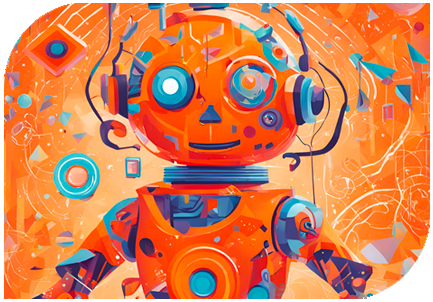 |
Artificial Intelligence (AI) at Dalhousie [login required]As part of the Digital Innovation & Transformation hub, this SharePoint site provides information on Dalhousie University’s proactive Artificial Intelligence (AI) application strategy, an introduction to Generative AI, and course delivery and employee guidelines for using AI tools. |
Using AI Tools at Dal
One thing to keep in mind is that Dalhousie does not currently have a gen AI tool that's been through a Privacy Impact Assessment. However, everyone has access to the Enterprise version of Copilot through the Microsoft 365 suite of apps through myDAL [login required]. As a faculty member, if you are going to ask students to use generative AI in your courses, you can only require they use Copilot while signed in with their Dal credentials [login required], and not any other AI tool or platform.

